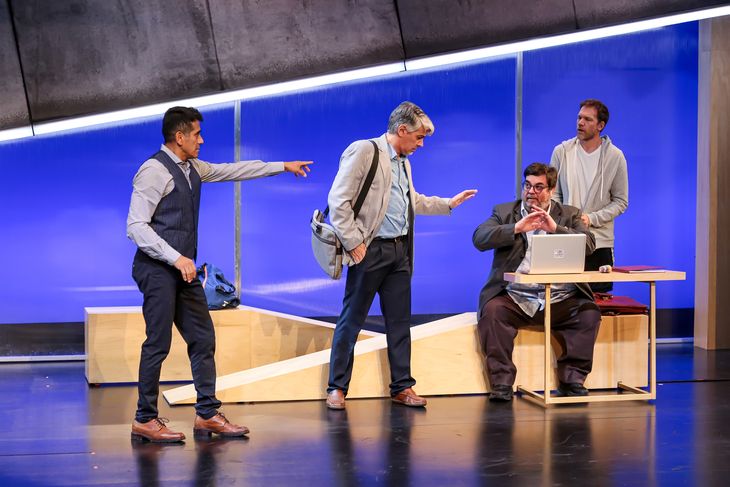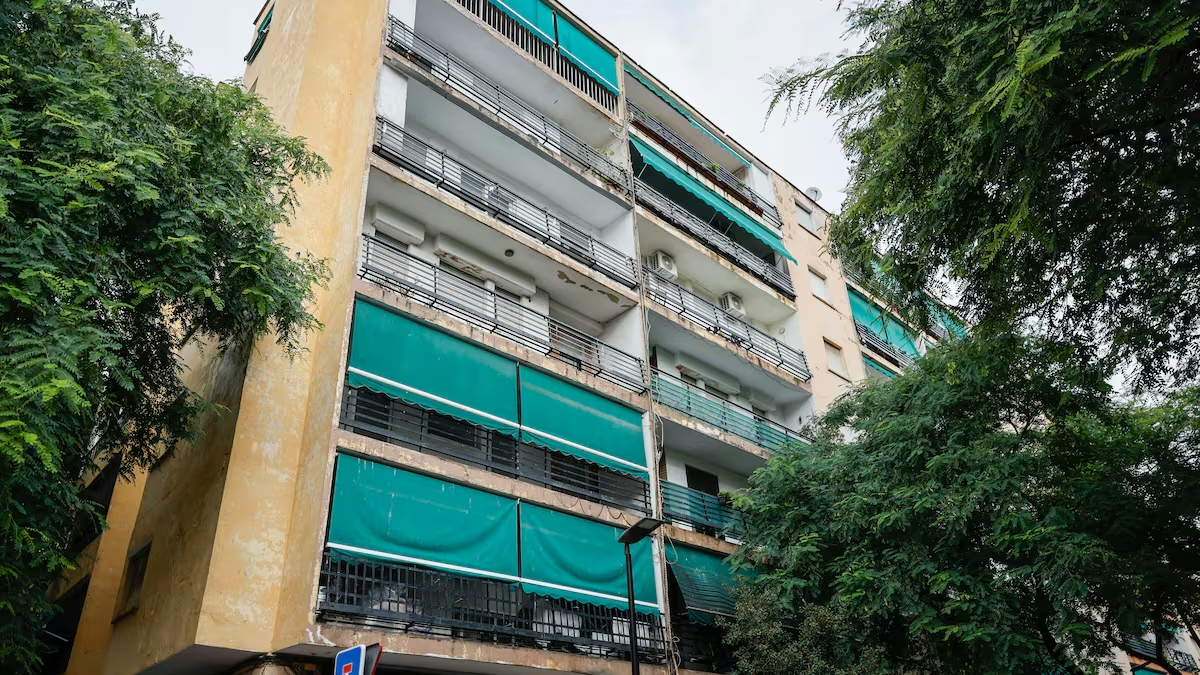“The characters need this collective alcohol ritual to see if Dionisio fixes the neurosis a bit, they accompany Baco until they play background,” says Juan Gil Navarro, protagonist of “Druk” next to Pablo Echarri, Carlos Portaluppi and Osqui Guzmán.
The work adapted by Javier Daulte of the film “Another round”, Explore alcoholism and disinhibition in an extraordinary way. It opens today at the Metropolitan Theater and will have Sunday functions. We talked with Gil Navarro and Guzmán.
Journalist: What captivated you in history?
Juan Gil Navarro: I was captivated to say what happens to us without having to resort to this trick of alcohol, or drugs or whatever, or pretend dementia, this fashionable curse lately. And what happens in front of this skid has to do with a teaching, the moral, it is not necessary to submit to that to acquire the courage to say what happens to one.
Osqui Guzmán: I am summoned by the state of crisis in which the characters are where there seems to be no turning of many things however recognize that opens doors to new things. Not only new states of awareness of who they are today, such as squeezing the experience gained and recognizing that all the past has been learning. That state of consciousness putting by virtue the crisis is what I like most about the work.
IMG_4126.jpg
Q.: Daulte highlights the dreaded 50 crisis, how are these characters?
JGN: Stehing the 50 I do not understand much this crisis, I did not have it at 40, I think it is a cultural construction, I do not feel crossed by that. What these people feel is that a horizon of self -reproaches and things that have not been able to solve, need this collective ritual to see if Dionisio fixes the neurosis a bit and somehow does. They go out then accompanying Baco and try to fix things but that happens.
OG: They have a friendship link that goes beyond school and allows them to show what the other does with his life and his profession. That is beautiful because there is a borroneated line between work and life product of your crisis state. They erase the border between what can be done and what is not. That state of borroneo takes them to their experiment and fall into absolute chaos. They touch background. Once they take that 0.5 they intend to go further, they return to their mischief and adolescents, they make that professional mischief that will change their lives. That friendship and complicity becomes deep. We had a clear connection with the cast, chemistry, to be influenced by the other and what Javier told us. That is what friendship does, a brotherhood bond.
Q.: How was the proposal to start the essays and how did the work grow?
JGN: From the day one we threw ourselves to the pool from a small talk, we did not read, we entered directly to the ring. What makes the work grow is the exercise of trust and repetition we have between the four. I compare it with what can happen in a kitchen brigade, each one is in their job, attends their station and does not know that there will be difficult nights and functions is it to stop the work of the other and vice versa. That camaraderie and respect for the other depending on whether the dish is what one wants is what will grow the work more.
OG: We started with a known letter to be able to experiment in the links, we started from moving to work and question, Javier had very clear the questions of the characters, there was parentheses in the essays where only Javier’s thought flew over the silence, moments of absolute beauty, four companions delivered to that abyss trusting, waiting, and making us strong.
Q.: It has an attractive trigger with this study on blood alcohol that derives on an exciting trip, what can the public expect from this experience?
JGN: In principle it looks like an apology of alcoholism but it is not, in that I was intent, put your finger on the sore. The public will have their high demand and we will live up because the dramaturgy is very good, the director’s work is very demanding and thanks to that we have tools to defend what we do. It has no potholes, a jump of faith is not glued but it is pure delivery, you have to cover anything that is not resolved.
OG: You can expect to see crisis and links between the characters. Through the networks and news it seems that the exit is disconnected to change the paradigms and we understand that in times of crisis it is the links that open the door to the crisis. People will live this level of connection that the theater has with the viewer, will also have fun with these pranks.
Q.: How do you see theater and culture today?
JGN: Fantastic, it is like that guy who is torturing him in 1984 and they ask him what is two plus two, he is not four or five, it is what someone wants to be, the fiction of dementia does not want four or five to be four or so that everything is fine.
OG: The theater and culture see them strengthened by opposition, as the people are attacked and artists are strengthened. It is impossible to collapse, you cannot enter battle with something that does not exist but at the same time it remains all the time in consciousness and memory. Cultural production is difficult, we are difficult to get together to create something because first is solving, the pitfalls and encouragement are infinite, the public is also difficult to buy tickets. There are many people who go to the theater anyway and the viewer self -produces, that is, he keeps a little money to go to the theater, recital and that is being complicated. The attack is cultural production, artists and people.
Source: Ambito
I am an author and journalist who has worked in the entertainment industry for over a decade. I currently work as a news editor at a major news website, and my focus is on covering the latest trends in entertainment. I also write occasional pieces for other outlets, and have authored two books about the entertainment industry.




